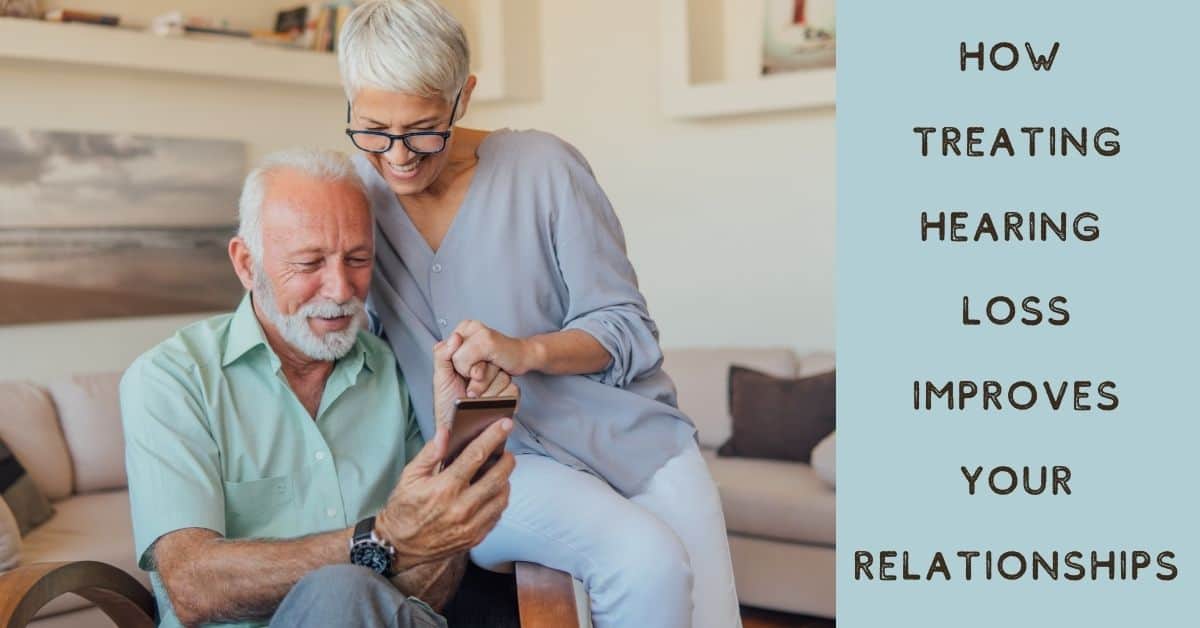Age-related hearing loss is a normal part of the aging process. In fact, everyone will suffer from age-related hearing loss if they live long enough: nearly 100% of centenarians have it. It can start as early as age 45 but might not be noticeable for many years, and unfortunately many of us lose a lot of time between when it starts to be problematic and when we start treating it with hearing aids. On average, people wait seven years from the time they start having trouble hearing to when they get hearing aids. This is too long!
Hearing Loss is Not Harmless
Once upon a time, hearing loss was thought of as an unfortunate but benign part of getting older. However, in recent years, we’ve learned that hearing loss can be the catalyst for a cascade of negative health outcomes, and can even be an early indicator of an underlying cardiovascular issue. Those with untreated hearing loss are twice as likely to develop cognitive decline and dementia, and are at a significantly increased risk for loneliness, depression and social isolation.
But long before these more serious problems arise, we start to notice smaller consequences of hearing loss. We feel ourselves becoming tired faster than normal in social situations or at work. We’re always asking others to repeat themselves, and we start to register the frustration they experience at not being heard. Pretty soon, trying to talk with other people starts to feel like a chore. We might start declining invitations, or choosing to watch TV with the volume up rather than spending time with others.
Some or all of this might seem familiar to you. Maybe you’re going through this process yourself, or maybe you’ve seen other people in your life start to move away from social life in this way once hearing loss becomes a problem. This process can be painful, and the frustration, worry and sadness you might feel while going through it might make it hard to see that others are feeling the same way. Indeed, our closest relationships are the ones that tend to suffer the most when hearing loss starts to become a serious problem.
Studies Indicate that Hearing Loss Harms Our Relationships
In a British survey from 2009, involving 1,500 respondents, 44% said that they attributed problems in their relationships with friends, family, spouses and/or partners to hearing loss, with 34% saying the problem had gotten so bad that it had ended relationships, including some marriages. 35% of respondents in a 2007 study said that out of all the social problems caused by hearing loss, their relationship with their significant other suffered the most.
Those with untreated hearing loss have reported both positive and negative feelings in their partnerships as hearing loss progresses. While many say they view their partners as being very supportive when their hearing starts causing communication problems, they also report feeling misunderstood when partners fail to understand just how fatiguing hearing loss can be, or how much background noise has to do with how conversational they can be. The frustration goes both ways.
This makes sense, doesn’t it? The people we spend the most time with are the ones who see the most impact from our hearing loss. Relationships are built on communication, and not just periodic conversations, but on thousands of tiny daily interactions. Little jokes, noticing things outside the window together, making plans big and small— it’s easy to take for granted just how many little interactions add up to our feelings of intimacy with one another until hearing loss starts to make them difficult.
Hearing Aids Can Help
Those who treat their hearing loss with hearing aids report satisfaction at a rate of over 90% when asked after one year of wearing them, and overwhelmingly say that hearing aids have saved friendships and partnerships.
Hearing aids today are smaller and better than ever before. Tiny computers allow them to fit your hearing loss profile perfectly. In many cases, hearing aids can augment hearing ability to near-normal. Designs are available for any lifestyle you could imagine, and many models can integrate with Bluetooth and other technologies to improve your communication experiences wherever you are.

